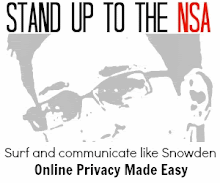 Kevin Samson
Kevin Samson
Activist Post
Even as revelations of nearly ubiquitous NSA surveillance have been detailed, and databases of every stripe seem to be on the rise, we cannot ignore our victories. Little by little, we are beginning to see a roll-back of some of the surveillance state.
From highways to small towns, the high-tech surveillance grid is being exposed and is provoking outrage among fully informed citizens. Recently, we saw Seattle police deactivate a Wi-Fi surveillance network, after it was exposed that the little white boxes identified across the city were really a mesh network that could surveil any member of the public possessing an Internet-ready device.
The same is beginning to happen with license plate readers, where we can offer a couple of notable victories that are setting a precedent for eliminating this intrusive technology across the board.
The Big Brother Police State has sought to convince citizens that any time they leave their house, they are entering the public domain; a place where there can be no expectation of privacy. The fact that the government should photo document your every movement and store it for later retrieval is anathema to a free society. Nevertheless, police departments everywhere have expanded these programs with little to no public discussion.
This mentality took shape in locations that have fallen under the 100-mile deep perimeter around the U.S. defined as the border – also called the “Constitution-Free Zone.” However, much in the same way that the War on Drugs has permitted many unconstitutional actions within this zone, the War on Terror has been the justification to roll out border surveillance tech across the rest of the country.
In Utah, the federal DEA tried to initiate a blanket sweep of all license plates traveling along Interstates 15 and 70, with the intent to store the information in a centralized database. As noted by the ACLU which attended a hearing about the roll out, this federal agency intended to employ a scanning technology called ALPR to collect data from “unspecified other sources and sharing it with over ten thousand law enforcement agencies around the nation.”
At the core of the matter is that a license plate contains a vast amount of personal information about who exactly is responsible for that vehicle, regardless of who is driving it at the time. Moreover, people have a right to privacy under the 4th Amendment to the U.S. Constitution, as well as additional rights pertaining to data collection afforded by the Privacy Act.
In the case of this section of highway through Utah along I-15 (clearly inland), the Beaver County Sheriff listened to the public outcry over privacy violations and decided to halt the plan immediately, while the Washington Country Sheriff has requested additional information. (Source)
 This victory was only possible from an informed citizenry who was willing to take action and demand that their public servants immediately comply with demands to halt this violation.
This victory was only possible from an informed citizenry who was willing to take action and demand that their public servants immediately comply with demands to halt this violation.
Another very exciting victory has just been achieved in Boston. It marks the first time that a major city has thwarted this aspect of the surveillance state.
Boston police have been scanning millions of vehicles per year and adding “the resulting date, time, and GPS coordinates into a massive database of private citizens’ movements around the city.” (Source)
Worse, is that the information has been proven to not work and to not be secure. An investigation by MuckRock and The Boston Globe explains how they reached their conclusions:
In July, the Boston Police Department (BPD) accidentally handed over to the Boston Globe an unredacted list of license plate numbers of more than 68,000 vehicles scanned over a six-month period. Many of the vehicles were tagged by the LPR system dozens of times in that period alone, the Globe reported.
[…]
Although there is nothing secret about local police forces using LPRs, the released data suggests the technology is not being used for its intended purpose, which is to locate and retrieve stolen vehicles, as well as to keep tabs on vehicles entering and exiting a particular region.
The data provides information on a stolen Harley Davidson motorcycle, for example, that was tracked by police plate readers 59 times over a six-month period. “It was often recorded on sequential days or multiple times in a single day, all by the same scanner and almost always within the same half-hour span in the early evening,” the newspaper noted.
Although the motorcycle was tagged multiple times by the hi-tech LPRs, there was no indication that an order was given to retrieve the stolen property, although each of those scans “prompted an e-mail alert to the department’s Stolen Car Unit”, The Boston Globe reports.
[…]
“It’s clear that in fact the reason that police departments are using this technology might not actually be the reason that they say they’re using it for,” said Kade Crockford, director of the Technology for Liberty Initiative at the ACLU Massachusetts [American Civil Liberties Union]. “We found that in this case that they’re not following up on the stolen car hits and to us that says the only [reason] that it’s being used is to collect huge troves of people’s movements.”
This has called into question the activities in Boston, as well as other metro areas:
The ACLU recently published a report showing that of the over 204 million license plates captured in the LPR program in Washington DC last year, just 0.01 percent of them registered as being on the “hot list.”
 That “hot list” is of course the justification for using this technology at all: the capture of child molesters, terrorists and other universally hated groups of criminals. Much like the presence of the TSA, however, the overwhelming majority of people being caught in this dragnet are innocent, constitutionally protected citizens.
That “hot list” is of course the justification for using this technology at all: the capture of child molesters, terrorists and other universally hated groups of criminals. Much like the presence of the TSA, however, the overwhelming majority of people being caught in this dragnet are innocent, constitutionally protected citizens.
For now the program in Boston has been suspended pending further review, and requires continued vigilance to ensure that it is not reinstated.
These latest positive developments highlight the importance of investigative journalism in an era of growing police power based on misleading or even completely false information. It also a reminder that we are entitled to know the full details of programs that our tax dollars fund before they are implemented. Nevertheless, if we have to fight to eradicate what has been put in place without our consent, we clearly can do that successfully. Once made aware, the public must take immediate action in sufficient numbers to ensure that their police and government understand who is really in charge.
Source:
http://rt.com/usa/boston-license-tracking-surveillance-277/
Recently by Kevin Samson:
- New Wi-Fi Technology Can Track You Through Walls
- NYPD Wants Stores to Point Security Cameras Toward Streets
- New Pre-Crime Computer Model Deployed in California
RELATED:


Be the first to comment on "VICTORY: License Plate Scanners Suspended in Boston Over Privacy Concerns"